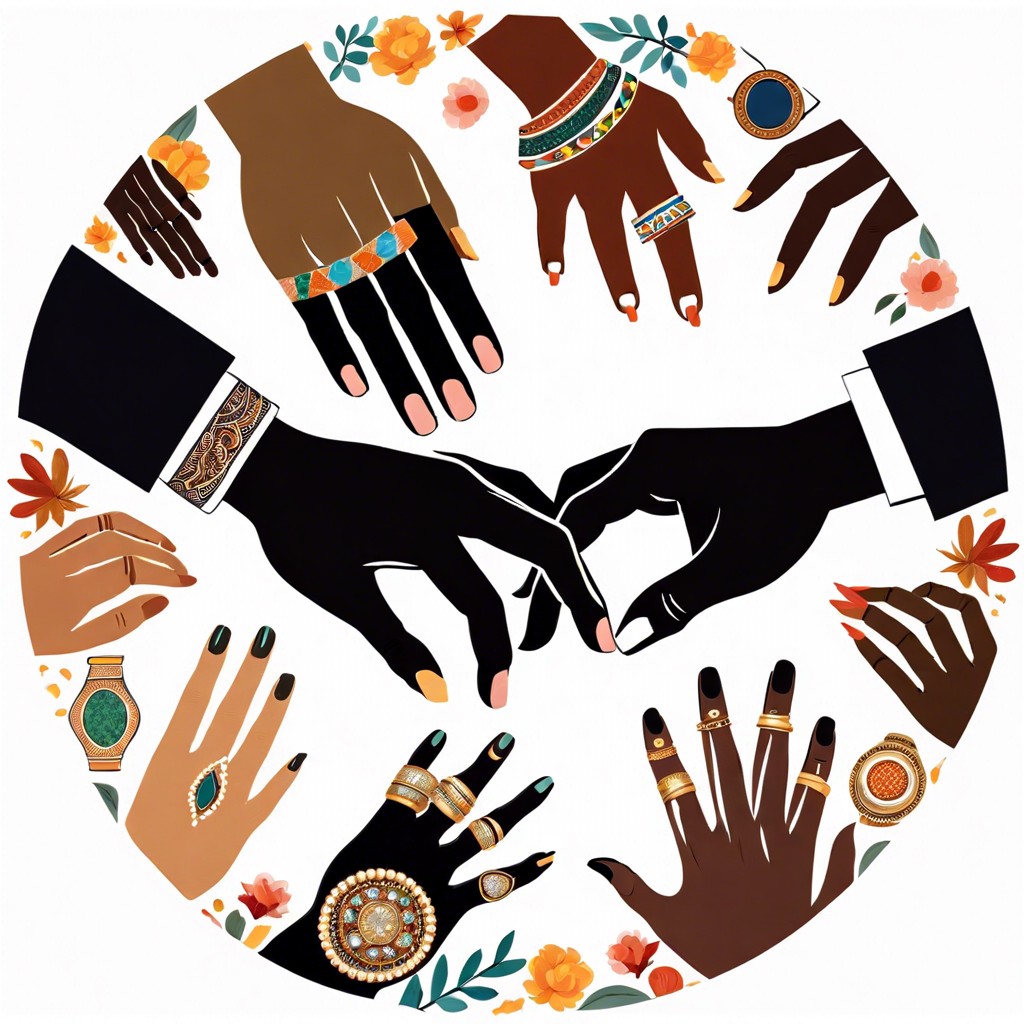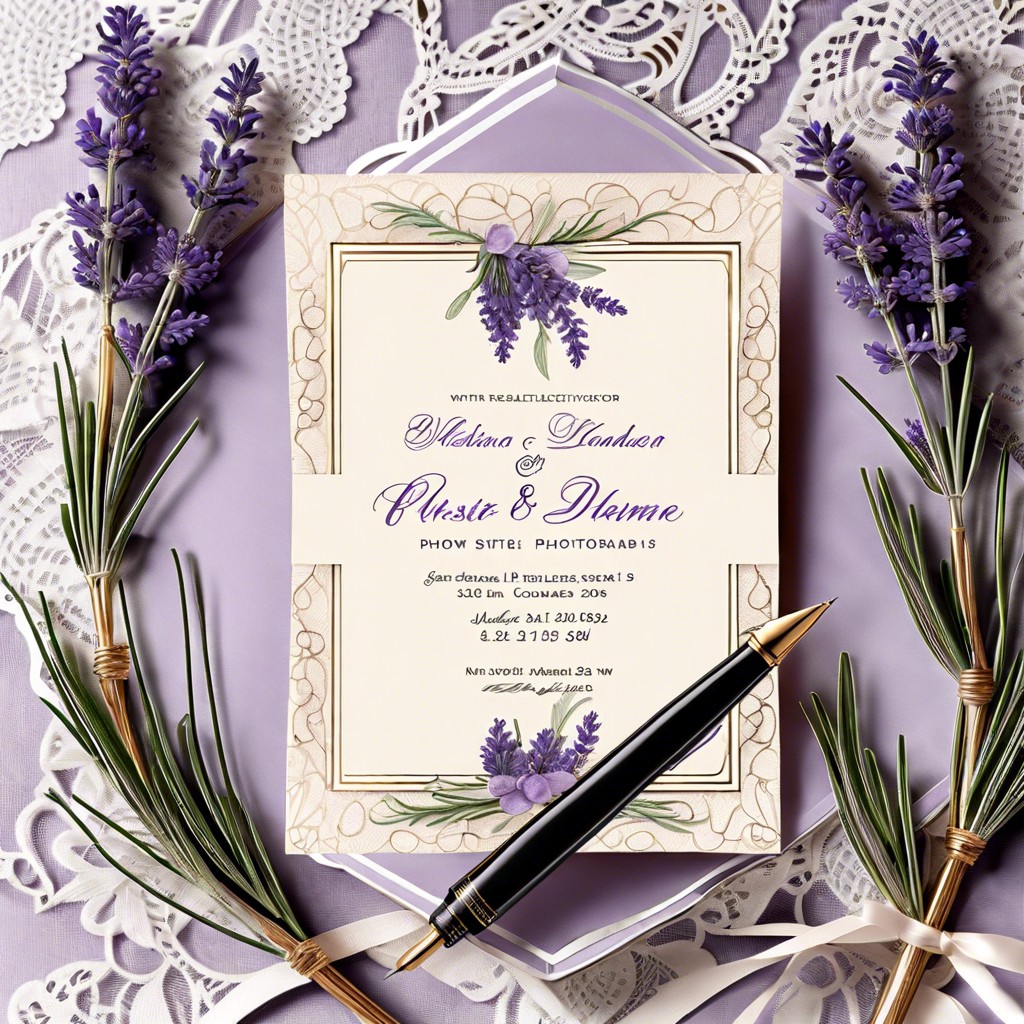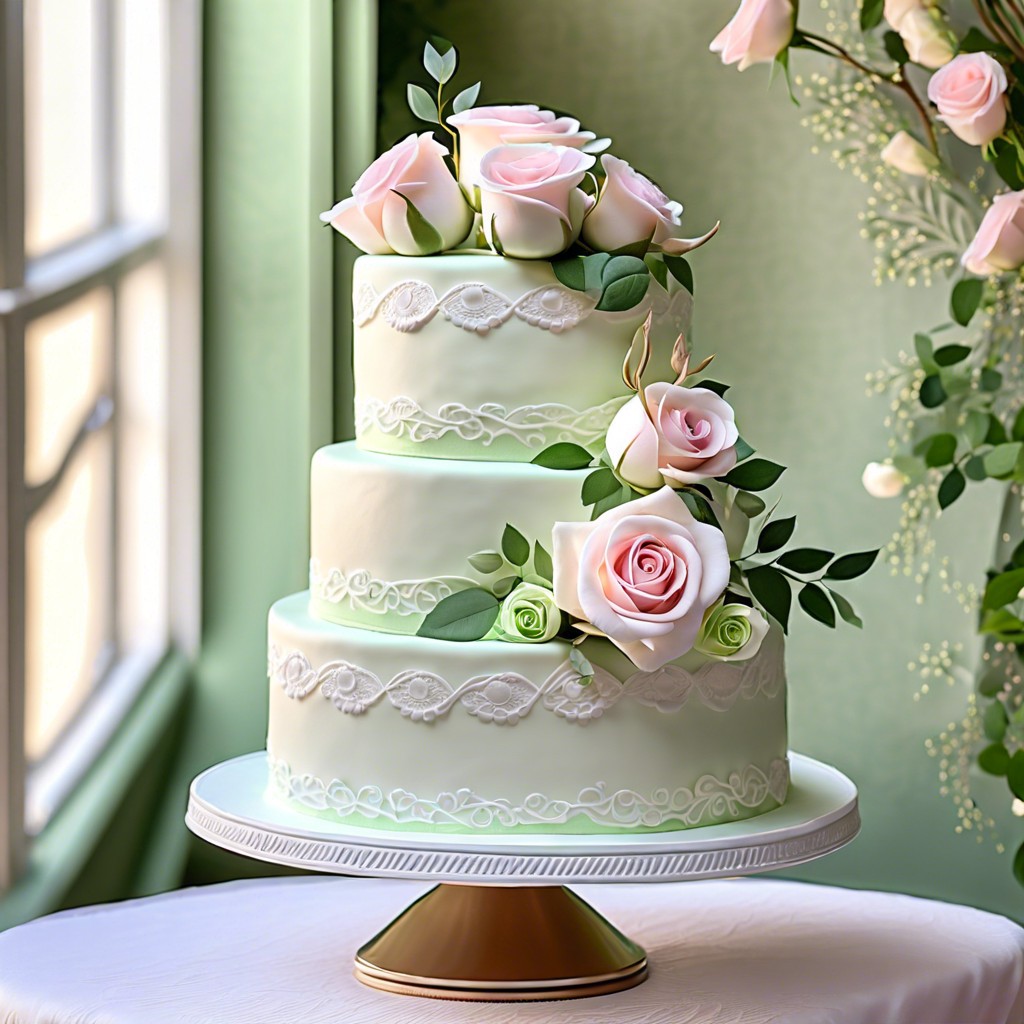In this comprehensive guide, straightforward details will be given on the ideal timeframe for sending out wedding invitations with RSVP, aiding in your overall wedding planning process.
Key takeaways:
- Save-the-dates: 6-8 months before the wedding
- Invitations: 8-10 weeks before the wedding
- Consider wedding complexity and potential delays in mailing
- RSVP deadline: 3-4 weeks before the wedding
- Provide multiple RSVP options and manage follow-up communication.
Understanding Wedding Invitation Timeline

To streamline your wedding planning process, it’s important to get a handle on your invitation timeline. Here are a few key points to consider:
- Save-the-dates typically go out six to eight months before the wedding. This gives guests ample time to clear their schedules and make travel arrangements, especially if it’s a destination wedding.
- Invitations should be mailed eight to ten weeks prior to the wedding date, allowing guests enough time to respond and for you to get a final headcount.
- For local guests, a six to eight-week timeframe for sending invitations is also acceptable.
- Consider the complexity of your wedding—more elaborate events or those during peak seasons may require earlier notice.
- Remember to account for potential delays in mailing and delivery when planning your timeline.
By setting a clear schedule from the onset, you’ll help ensure that your guests are informed in a timely manner and that you can proceed with your planning with an accurate guest count.
Best Time to Send Wedding Invitations
As a general guideline, it’s advised to dispatch your wedding invitations six to eight weeks before the big day. This timeframe offers guests ample opportunity to clear their schedules and make travel and accommodation arrangements if necessary. For a destination wedding, consider extending the notice to three months to ensure everyone has plenty of time to prepare for the longer journey.
To enhance the sense of anticipation, sending out save-the-date cards six to eight months in advance can be greatly useful, especially if you’re tying the knot during peak holiday seasons or hosting a destination wedding. This heads-up provides guests the opportunity to plan ahead, potentially saving on travel costs.
Moreover, keep in mind the seasonality and location of your wedding. During busy travel times like summer or the winter holidays, guests may need extra notice. Similarly, if you have many out-of-town guests, giving them additional time to plan their trip can be a thoughtful touch.
Lastly, ensure your invitations reflect the formality and style of your event. A black-tie affair at a chic venue might call for a more sophisticated invitation design, whereas a casual beach wedding could have a more relaxed invitation style.
Setting the RSVP Deadline
To ensure a smooth wedding planning process, it’s vital to have guests’ confirmations in hand well before the big day. Choose a date that allows enough time to finalize the seating chart, give the caterer a final headcount, and make any last-minute adjustments.
Typically, setting this cutoff point three to four weeks before the wedding strikes the right balance. It’s crucial to consider any vendor deadlines, as some may need the final count earlier. Clearly print or state the deadline on the RSVP card to avoid any confusion, and consider selecting a date earlier in the week, which can prompt guests to send their responses over the weekend.
Remember that a defined deadline can significantly streamline your planning process and reduce pre-wedding stress.
Providing Multiple RSVP Options
Offering a variety of RSVP methods caters to guests with different preferences and ensures a higher response rate. Traditional mail-in cards are a standard option but consider including a wedding website or an email address for electronic submissions. For convenience, also add a phone number for verbal confirmations.
Ensure each method is clearly indicated on the invitation to avoid confusion. Double-check details like the email address, website URL, or phone number for accuracy before sending out invitations to prevent any communication issues.
Managing RSVP Follow-up and Grace Periods
Once your RSVP deadline has passed, it’s time to reach out to those guests who haven’t responded. A friendly reminder via phone call, email, or text message can prompt a quick reply. Consider this a gentle nudge, not a demand; approach it with understanding and kindness.
Set aside a grace period of a few days after the RSVP deadline to account for any late responses. During this time, you can also verify that no responses were lost in the mail or overlooked in your inbox.
Communicate promptly with your caterer and venue about final headcount, factoring in your grace period for a seamless finalization of plans. This ensures no last-minute surprises and helps in creating a reliable seating chart and meal arrangement.
Always maintain a record of your follow-ups for personal organization and clarity. This will assist you if any discrepancies arise closer to the big day.
FAQ
Is 3 months too early to send out wedding invitations?
No, sending wedding invitations 3 months prior is not too early, it falls within the recommended timeline of 2-4 months before the wedding for optimal planning and response time.
How far in advance do you send out wedding invites?
Traditional wedding invitations are usually sent out six to eight weeks in advance, while for destination weddings the timescale is approximately three months ahead of the wedding date.
How soon do you send out RSVP cards for wedding?
RSVP cards for a wedding should ideally be sent out six to eight weeks prior to the event, allowing guests approximately one month to respond.
Do you send RSVP with wedding invitations?
Yes, RSVP instructions should be included with wedding invitations.
What's the ideal timeline for mailing out save-the-dates before wedding invitations?
Save-the-dates should ideally be sent six to eight months before the wedding, and wedding invitations should follow eight to ten weeks before the wedding.
Should you set an RSVP deadline for your wedding guests?
Yes, setting an RSVP deadline for your wedding guests is advised to assist in finalizing the guest count for planning purposes.
What is the etiquette concerning online wedding invitations and RSVPs?
The etiquette of online wedding invitations and RSVPs requires timely distribution of invitations, clearly informing guests about the event's details, and providing a simple process for prompt responses.



